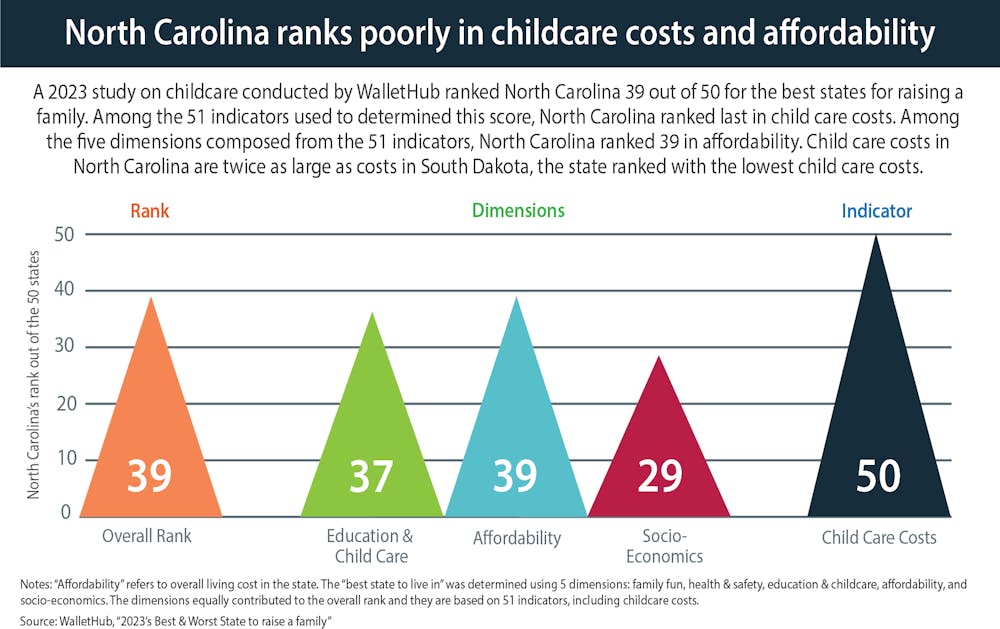In a recent report published by WalletHub using 51 different indicators, North Carolina was ranked the 39th best state to raise a family.
When adjusting for median family income, North Carolina ranked last in terms of child care cost. The average annual cost of child care in North Carolina is $9,255 for an infant and $7,592 for a 4-year-old.
According to the NC Early Education Coalition, only 26.7 percent of families can afford care without exceeding the federal recommendation of spending no more than 10 percent of family income on child care.
Child care subsidies ensure children’s access to quality education and allow parents to work, benefitting businesses, the N.C. Department of Health and Human Services' Division of Child Development and Early Education said in an email.
“Strengthening the availability and accessibility of early care and learning across the state supports families, businesses and communities,” the department said in the email.
While child care subsidies exist, there are 30,000 children aged 5 and under on the waitlist. According to the NCEEC, low-income parents without access to assistance spend over one-third of their total yearly income on care.
Elaine Zukerman, the advocacy and communications director for the NCEEC, said parents can wait for up to two years on waitlists to get a spot.
The NCEEC classifies North Carolina as a "child care desert," with an average of over five families competing for every one available licensed child care slot statewide.
Families that rely on child care in order to work depend on these programs. Statewide, over two-thirds of children under six live in households where all parents work.




